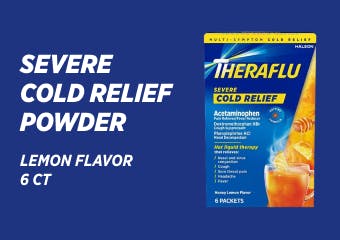What Does the Flu Vaccine Do?
Once a flu vaccine is injected, antibodies develop throughout the body to protect against the influenza disease. Since every flu season is different, research is conducted annually to ensure that doctors administer flu vaccines for the different anticipated influenza viruses that are predicted to go around every year. The flu vaccine protects against the three to four different strains of the virus that researchers believe will be the most prominent that season.1
Flu vaccines are created to protect against an influenza A (H1N1) virus, an influenza A (H3N2) virus, and influenza B — and the CDC strongly recommends that individuals as young as 6 months of age get vaccinated each year.
What are Some Side Effects of the Flu Vaccine?
Some common side effects from the flu vaccine include muscle soreness, minor swelling and redness where the vaccine was administered, a low-grade headache and/or fever, nausea and fatigue. These side effects are usually very minor and should subside on their own in just a few days.
Serious life-threatening allergic reactions to the flu shot are very uncommon but tell your medical provider if you have a history of allergic reactions to the flu vaccine.1 If you experience a severe reaction to the flu vaccine, then call your doctor right away and tell them the following: the date and time of your flu shot, the date and time of your reaction, and your past and current symptoms.1
Managing and Preventing Flu Symptoms
“Get yourself and your family vaccinated with the flu vaccine,” says Dr. Jason Kessler, chief of Infectious Diseases at Atlantic Health System's Morristown Medical Center. “This doesn't always prevent the flu, but it can shorten the duration or severity.” A study done in 2018 showed that vaccinated adults that were hospitalized with the flu were 59% less likely to be sent to the intensive care unit than patients who had not received their flu vaccine. In addition, of the patients who were sent to an intensive care unit to be treated for the flu, patients who had received their flu vaccination stayed at the hospital an average of 4 days less than unvaccinated adults.1
Since the flu vaccination doesn’t always stop the flu, Kessler suggests being proactive if you come down with the virus during peak flu season. “Don't go to work when you have flu symptoms, such as fever, muscle aches, vomiting, or GI symptoms,” he advises. Kessler also advocates for the power of frequent hand washing. “Wash your hands with an antibacterial soap for 30 seconds under warm water multiple times each day.”
In the event you come down with the flu, most mild symptoms of cold and flu can be managed with over-the-counter medicines. Theraflu Multi-Symptom Severe Cold is a great option because it provides fast, powerful relief in the form of a warm, soothing liquid (when used as directed). Looking for more soothing solutions? Check out our home remedies page.
If you are at risk for complications from the flu due to previous or chronic health conditions, then please contact your doctor. If you are experiencing any of the emergency symptoms of the flu, getting medical care right away is of the upmost importance.2
Emergency symptoms for adults include:
Shortness of breath or trouble breathing
Chest pain
Dizziness
Seizures
Worsening of chronic medical conditions
Severe muscle pain and weakness
Emergency symptoms for children include:
Shortness of breath or trouble breathing
Blue lips
Chest pain
Severe dehydration
Severe muscle pain and weakness
Seizures
Worsening of chronic medical conditions2
Myths About the Flu Vaccine, Debunked
Despite the outstanding benefits of getting vaccinated each flu season, there are still a few misconceptions about the flu vaccine. One of the main misunderstandings of the flu vaccine is that it gives people the flu. According to the CDC, flu vaccines either contain a non-infectious flu virus or just one gene from a flu virus in order to produce an immune response, making it impossible to come down with the flu this way.
Another common flu myth is that it’s unsafe for children, which Dr. Kessler debunks: “The flu vaccine is also safe for children. Work with your child's doctor to determine an appropriate schedule.”
Some also believe it’s better to get the flu than receive the flu vaccine. The CDC advises against this, as getting vaccinated for the flu is much safer than risking the flu disease itself.
While the flu vaccine is not 100% effective, it is crucial to receive one come flu season, as it is still your best protection against the flu.2




